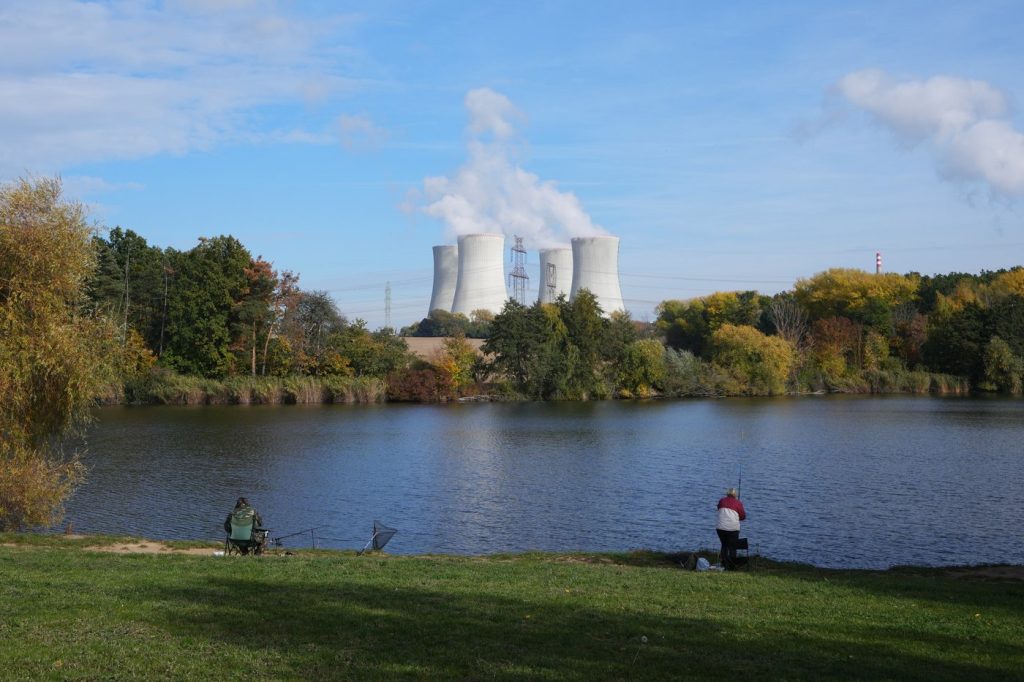The Dukovany Nuclear Plant in the Czech Republic stands as a significant landmark, with its eight massive cooling towers overlooking a construction site dedicated to a major expansion project. The Czech Republic is making strides to enhance its nuclear energy capabilities, with plans to invest approximately $19 billion in the construction of two new reactors. This initiative seeks to double the country’s nuclear output, reinforcing its status as one of Europe's most nuclear-dependent nations.
Mobile drilling rigs are currently extracting geological samples up to 140 meters underground to ensure the site is suitable for this ambitious project. South Korea's Korea Hydro and Nuclear Power (KHNP) won the tender to build the new plant, which will feature two reactors, each with a capacity exceeding 1,000 megawatts. The new reactors are expected to begin operations in the second half of the 2030s, complementing the existing four reactors at Dukovany, which were commissioned in the 1980s.
In addition to the Dukovany expansion, the KHNP deal offers the Czech government the option to add two more nuclear units at the Temelín Nuclear Power Plant, which currently operates two reactors, each with a generating capacity of 1,000 megawatts. Following these developments, the Czech Republic plans to explore the possibility of implementing small modular nuclear reactors.
Petr Závodsky, the chief executive overseeing the Dukovany project, stated, "Nuclear will generate between 50% and 60% around 2050 in the Czech Republic, or maybe slightly more." This expansion is deemed essential for the country as it seeks to reduce its dependence on fossil fuels, secure stable electricity sources at reasonable prices, comply with stringent emissions standards, and meet the increasing demand for electricity driven by data centers and electric vehicles.
The Czech Republic's nuclear expansion occurs in a broader European context where nations are reconsidering their energy strategies amid rising energy demands and accelerating climate change initiatives. Although nuclear energy generates radioactive waste, it is recognized for not producing greenhouse gas emissions, such as carbon dioxide, which contribute significantly to climate change.
The European Union has designated nuclear energy as part of its framework for environmentally sustainable development, facilitating financial support for nuclear projects. This decision has positively impacted various countries, including the Czech Republic, Slovakia, Hungary, and France, which have maintained or expanded their reliance on nuclear power. Meanwhile, Belgium and Sweden have recently reversed plans to phase out nuclear energy, and Poland is set to join this group of nuclear-supporting nations with its new agreement to build three nuclear units in collaboration with Westinghouse.
In the UK, a new partnership with the United States aims to usher in a "golden age of nuclear," highlighted by a significant investment of 14.2 billion pounds ($19 billion) to construct the Sizewell C nuclear power plant, the first in the country since 1995.
CEZ Group, the dominant power company in the Czech Republic, in which the government holds a 70% stake, is committed to the new nuclear facilities and has partnered with Rolls-Royce SMR to develop and implement small modular reactors. The Czech government is set to finance 80% of the new plant's costs through a loan that CEZ will repay over 30 years, with a 40-year guarantee for stable income from electricity production.
Despite the overall support for nuclear energy in the Czech Republic, skepticism exists, both domestically and internationally. Critics argue that pursuing nuclear power may be cost-prohibitive and assert that funds could be better allocated to enhance energy efficiency or alternative energy sources. Furthermore, the nation still lacks a permanent solution for the storage of nuclear waste.
Geographically, both the Dukovany and Temelín plants are located near Austria's border, a country that abandoned nuclear energy following the Chernobyl disaster in 1986. Austria has voiced strong opposition to nuclear projects, with its parliament recently rejecting a plan for small modular reactors in the Czech Republic.











